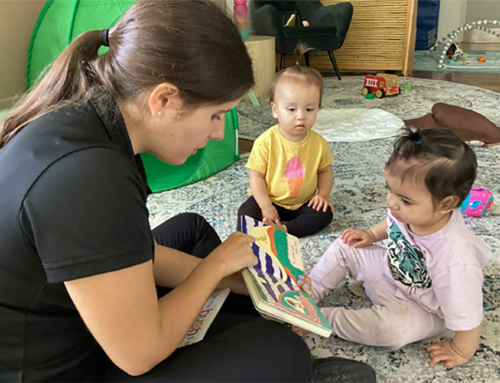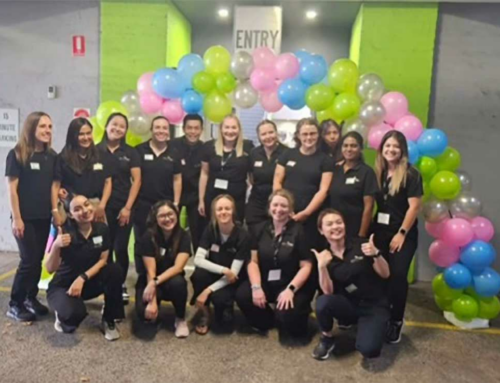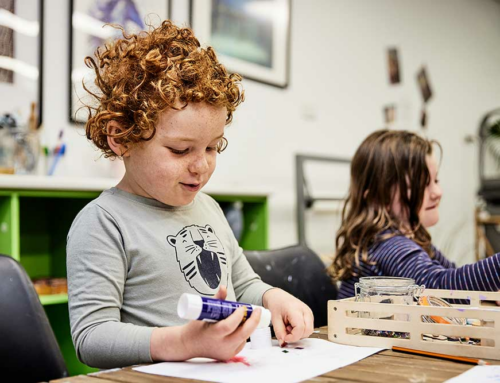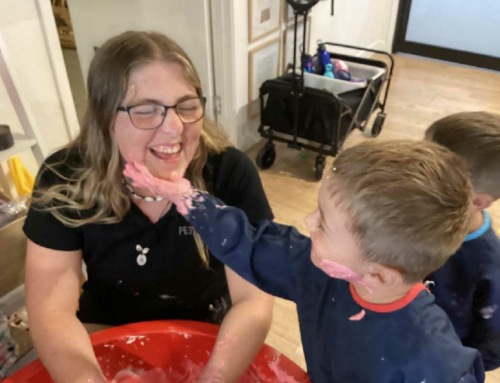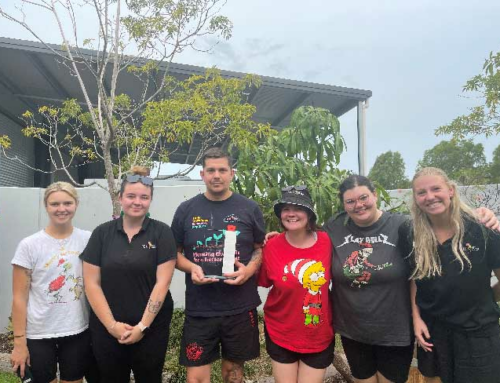From the moment a child is born, there are playful beginnings. A newborn is hardwired to move about and experiment with how things, like fingers, wiggle and touch. Though it may seem ordinary, a baby naturally embarks on an adventure of a lifetime through play-based learning.
Children actively participate in their own development. It is a time for discovery, risks and playful experimentation. By recognising play as a critical part in a child’s gaining of knowledge and skills, educators can engage a child more effectively in learning.
Play-based learning has a significant role in The Early Years Learning Framework (EYLF). As educators, it’s important to understand:
- The meaning of play-based learning
- What are the benefits of play
- How children learn through play
- How we can support a child’s learning through play
To help ground our understanding of play-based learning, we asked Centre Educational Leader Denell from Petit Caloundra for her expert advice.
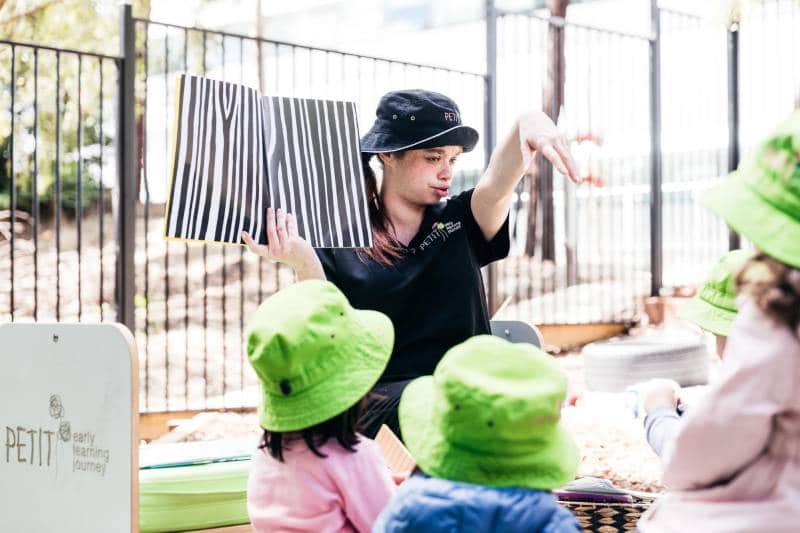
What is play-based learning?
The EYLF defines play-based learning as, ‘a context for learning through which children organise and make sense of their social worlds, as they engage actively with people, objects and representations.’
UNICEF in their 2018 publication, Learning through play, expands this definition by highlighting the child’s initiative, decision making and self-choice to control the experience. In other words, play-based learning is a child-initiated experience unrestricted by limited goals.
Children of all ages and across different cultures play. It could be as simple as throwing and watching different types of leaves float away on a river current, or it could involve social aspects where children gather together to build a fortress out of blocks.
Children learn as they play through observation, discussion, by using their imagination and trying things through trial and error and reasoning. By observing or having conversations with others, children can also feel challenged to explore their ideas further.
Play is generally:
- Meaningful, as children use it to make sense of their world
- A happy experience, although there may be obstacles and differences to overcome
- Actively engaging where children interact with people, objects or ideas
- Process orientated, as it helps children to discover and practice new skills and abilities
- Rewarding through participation.
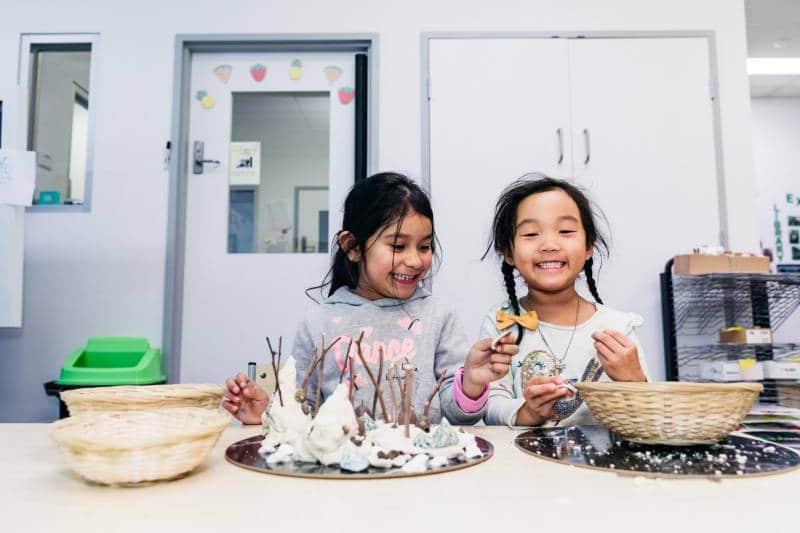
What are the benefits of play-based learning?
There are many benefits of play, and some are often overlooked. At Petit Caloundra, educators use a holistic approach to play. It looks at how play benefits the whole child which includes mental development, psychological, social and emotional growth.
‘A holistic methodology seeks to help children develop their skills and extend their strengths,’ says Denell.
Play also seeks to help children:
- Develop their creativity
- Use their imagination
- Develop fine and gross motor skills
- Explore their world
- Develop social connections
- Learn how to negotiate and resolve conflicts
- Build resilience
- Strengthen confidence.
‘A great deal of research has concluded that play-based learning is positively impactful on learning and development. Children learn best when mentally active, engaged, social and able to make meaningful connections to their lives – all the characteristics of play,’ adds Denell.
‘In play-based learning, each child is able to take on an active role in the learning, they are engaged, and the information is meaningful to them, which in turn has a positive effect on their learning and development.’
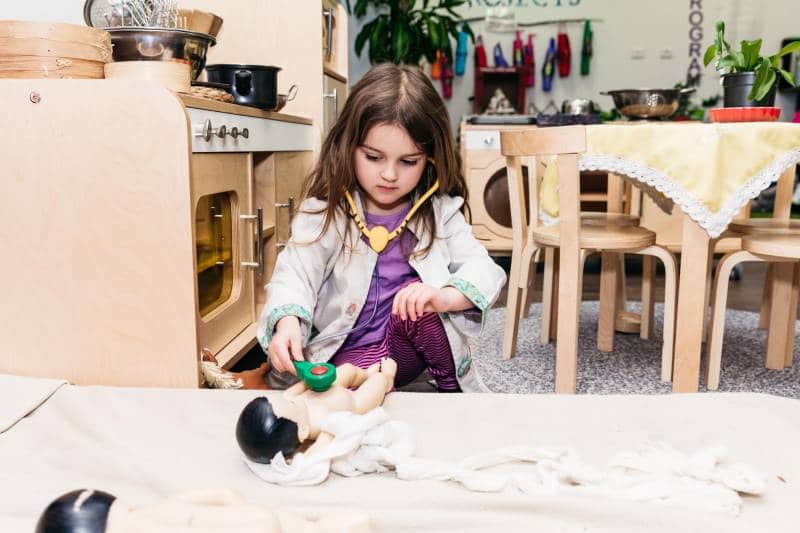
How do children learn through play?
Children learn by getting their hands dirty, often literally. They have a hands-on attitude, but they’re not thinking about what they’re going to learn from their experience. Children are naturally curious, so play begins by exploring and learning about their environment.
Children learn in many different ways. Sometimes, they’ve seen another child try something, and they want to have a go, or a new idea comes up through interactions with other people. At Petit, we create playful environments focused on children with lots of different choices.
And play is often an immersive experience for children. They can exercise their imagination and build elaborate worlds while putting their whole physical body into the experience. Play not only strengthens physical muscles but it also exercises mental and emotional muscles too.
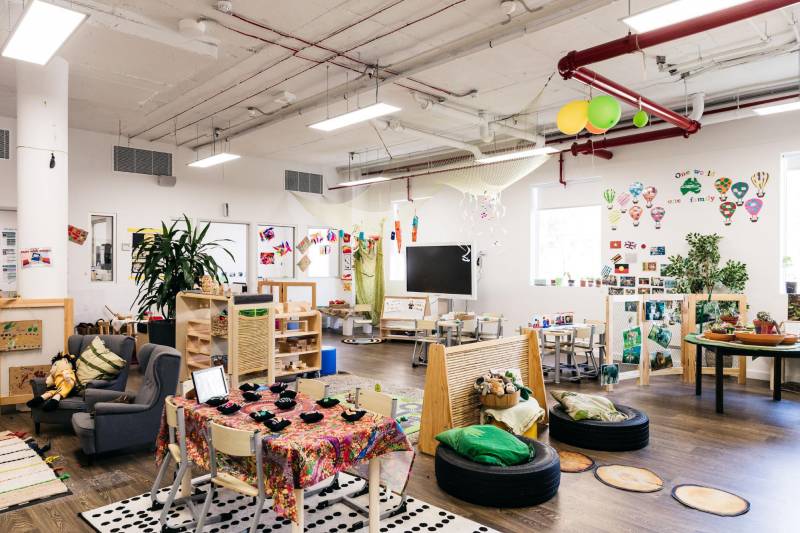
How can we support a child’s learning through play?
At Petit Caloundra, Denell explains play-based learning programs include a balance of child-led and teacher initiated experiences.
‘Our educators support children’s agency in the program while being there to support and scaffold their interests when required through the addition of resources, play space and intentional teaching strategies.’
The thoughtful planning of materials engages a child’s curiosity and sparks spontaneous play and interactions as well as playful experiences that encourage learning. Collaboration with children and their families is an essential element too.
‘Play-based learning requires a strong partnership with families to ensure we have a strong understanding of children’s interests. It allows us to implement an effective learning cycle that emphasises the interests of groups and individuals.’
Denell shares a recent example of play-based learning in action at Petit Caloundra, ‘In our Treasure Cove studio, the children have been looking at water and how it is needed to sustain life. This led to looking at water needs for ourselves as living beings.
Although this has been an intentional teaching goal of our Queensland Kindergarten program for this term, the water theme has branched off in many directions due to interests and suggestions from the children.
Some examples have been water-play, sink or float experiments as well as looking at mathematical concepts such as measuring and weighing using water and recycled bottles.
By scaffolding the children’s interests and providing the resources, time and settings, the children have been able to complete these inquiries in a play-based manner which was meaningful to them. It resulted in a multitude of learning outcomes including mathematics, literacy, social and emotional.’
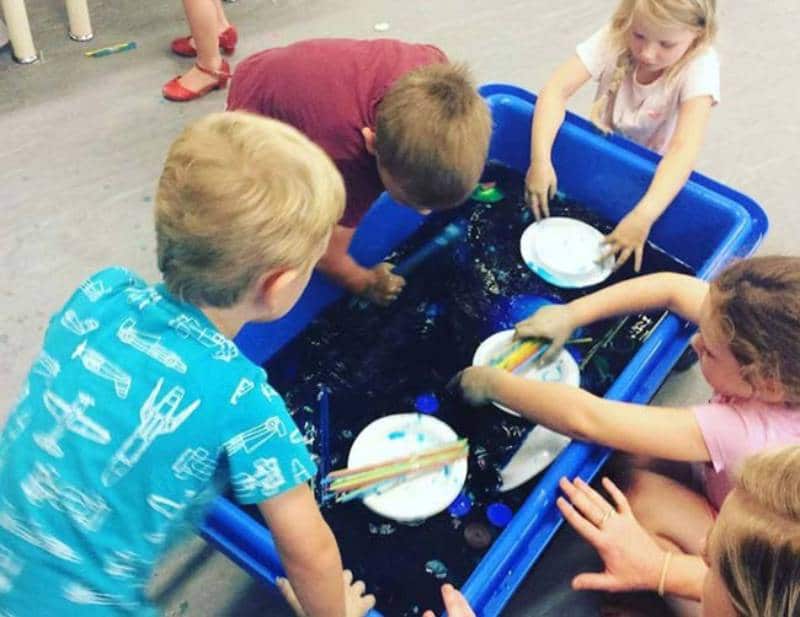
Embrace the value of play with Petit Early Learning Journey
A critical role for educators is to create a safe and creative learning environment for children. At Petit Early Learning Journey, we value the child’s interests and encourage a holistic approach to child-led play by supporting and valuing their choice, instead of instructing them in what to do.
If you enjoy playful enactment of the imagination and are ready to be responsive to children’s conversations, storytelling, playing and listening to music, then we’d love to hear from you.
Be part of an organisation that cherishes a lifelong joy of learning through play.

